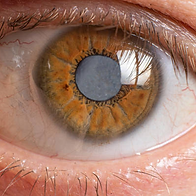
Cataract
Cataract is a common eye condition that affects many people, especially as they age. It occurs when the lens of the eye becomes cloudy, leading to blurry vision and difficulty seeing clearly. Fortunately, cataract surgery is a safe and effective treatment option that can restore vision and improve quality of life. If you or a loved one experiencing symptoms of cataract, it's important to speak with us to discuss your options for treatment.

Glaucoma

Glaucoma is the name given to a group of eye diseases where vision is lost due to damage to the optic nerve. Approximately 300,000 Australians have glaucoma. Generally, there are no symptoms or warning signs in the early stages of this eye condition. The loss of sight is usually gradual and a considerable amount of peripheral (side) vision may be lost before there is an awareness of any problem.
The primary problem in glaucoma is damage to the optic nerve. Intraocular pressure (IOP) is the fluid pressure inside the eye. The level of eye pressure at which there is progressive damage to an optic nerve varies between people: some individuals with high eye pressure do not develop nerve damage, while others with normal eye pressure develop progressive nerve damage.
The best way to protect your sight from glaucoma is to have your eyes tested.
Diabetic Retinopathy
Diabetic retinopathy is a serious eye condition that affects people with diabetes. It occurs when high blood sugar levels damage the blood in the retina, leading to vision loss. Early detection and treatment are crucial in further damage. If you have, it's important to have regular eye exams to monitor for diabetic retinopathy.


Macular Degeneration
Macular degeneration is a common eye condition that affects many people as they age. It occurs when the macula, the part of the eye responsible for central vision, degenerates. This can cause blurred or distorted vision, making it difficult to perform everyday tasks such as reading or driving. While there is no cure for macular degeneration, there are treatments available that can help slow its progression and preserve vision. If you are experiencing any changes in your vision, it is important to see an optometrist for a comprehensive eye exam.
Dry Eyes
Dry eyes can be a frustrating and uncomfortable experience. It can be caused by a variety of factors, including environmental conditions, aging, and certain medications. Fortunately, there are steps you can to alleviate dry eyes, such as using artificial tears, taking breaks from screens, and increasing your intake of omega-3 acids. If you experiencing persistent dry eyes, it's important to consult with an optometrist to determine the underlying cause and develop an effective treatment plan.

